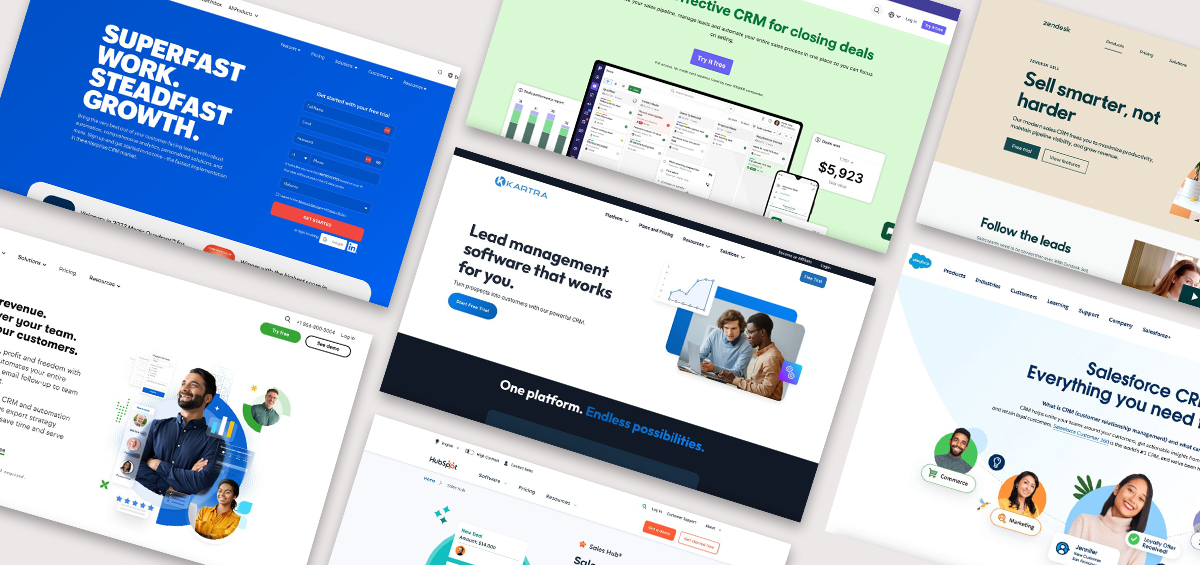The digital advertising landscape is undergoing a major transformation. As privacy and data security become a growing concern for individuals, tech giants like Google have announced plans to phase out 3rd party cookies by Q3 of 2024. This transition will present new challenges for businesses in tracking, attribution, and privacy compliance. These changes will impact how businesses track customer interactions and measure marketing success. Understanding and adapting to the changes can give you a competitive edge.
In this blog, we’ll explore how these changes could impact you. We’ll also delve into how Kartra is staying ahead of the curve by leveraging first-party party cookies to improve the tracking experience and go over some best practices for navigating this industry-wide transition.
The End of Third-Party Cookies: What You Need to Know
Third-party cookies have long been the backbone of digital advertising; allowing marketers to track users across multiple websites, build detailed user profiles, and deliver targeted ads. For marketers and businesses, third-party cookies have been invaluable for measuring success and attribution in their marketing campaigns, enabling them to build, track, and target user profiles across various websites.
What are Third-Party Cookies?
According to CookieYes, Third-party cookies are created by websites other than the one you are currently visiting. These cookies track a person’s activity across different websites, allowing advertisers to build comprehensive profiles and target ads effectively.
The tracking and building of user profiles along with the lack of control individuals have over the data collected on them has been a primary factor in raising privacy concerns over the use of third-party cookies.

Why Are Third-Party Cookies Going Away?
The primary driver behind this shift is the increased demand for user privacy and data security. Regulations such as the General Data Protection Regulation (GDPR) in Europe and the California Consumer Privacy Act (CCPA) in the United States have set high standards for data protection. These regulations, along with growing consumer awareness about privacy, have pushed browsers to eliminate third-party cookies.
In order to best understand what this industry transition means for you, let’s learn a bit more about first vs third party cookies.
Understanding First-Party Cookies vs. Third-Party Cookies
What Are First-Party Cookies?
First-party cookies are small pieces of data created by the website a user is visiting. This data helps website owners understand user behavior and preferences, allowing personalized experiences and improved site functionality.
First-party cookies are not shared with other websites or partners and require user consent for tracking.
How Do First-Party Cookies Differ from Third-Party Cookies?
Ownership and Control:
- First-Party Cookies: These operate exclusively on the website a user is visiting and will only track interactions on that site.
- Example: If you visit an online store, a first-party cookie will remember the items in your shopping cart as you browse the site.
- Third-Party Cookies: These are created by other websites, not the one you’re currently visiting. They track your interactions across multiple websites to build a profile of your online behavior.
- Example: If you see an ad on Yahoo for an Amazon product you viewed, that’s because of Yahoo’s third-party cookie tracking your activity.
Privacy and Consent:
- First-Party Cookies: These cookies offer more privacy and consent because only the website you are on can access them. You have more control over these cookies, as you can choose to allow or block them in your browser settings.
- Example: When you visit an online store, you might see a pop-up asking if it’s okay to use cookies to track your activity. If you say yes, you may still erase these cookies at any time by going to your browser settings and deleting them.
- Third-Party Cookies: Offer little to no user control and consent opportunities while raising privacy concerns due to their extensive tracking.
Usage in Marketing
- First-Party Cookies: These are primarily used to enhance user experience by remembering preferences and personalized settings. They also help with site analytics.
- Third-Party Cookies: These are used for targeted advertising and detailed analytics across different platforms.
Implication of the Phase Out
The elimination of third-party cookies disrupts traditional methods of tracking and attribution causing difficulties in:
- Cross-Site Tracking: Without third-party cookies, it’s hard to see what people do on different websites. This mainly impacts businesses that run online ads. They won’t have as much information or insight about their audience demographics and activity. Instead, businesses will have to use their own customer data, which might be limited or lower volume.
- Ad Targeting: The effectiveness of targeted advertising could diminish as the ability to track user behavior across multiple sites is reduced.
Measuring & Attribution Challenges: The removal of third-party cookies will make it harder for businesses to track users across websites, affecting targeted ads and marketing measurement. Companies will focus more on first-party data while emphasizing direct customer engagement and new ways to understand customer behavior.
Transitioning to First-Party Data
As the digital landscape evolves and privacy regulations tighten, businesses are increasingly relying on first-party cookies to gather insights while respecting user privacy. By focusing on first-party data, companies can ensure compliance with regulations like GDPR and CCPA, while still gaining valuable information to optimize user experiences and marketing efforts.
Benefits of First-Party Data
- Enhanced Privacy: Users have more control over their data, as first-party cookies are managed by the website they are visiting.
- Improved Accuracy: First-party data is directly collected from user interactions on your site, ensuring more accurate and reliable insights.
Regulatory Compliance: Relying on first-party data aligns with evolving privacy regulations, ensuring long-term sustainability for your tracking strategies.

How Kartra is Staying Ahead of The Curve
To address the challenges caused by the phase-out of third-party cookies, we are pleased to announce that Kartra relies exclusively on first-party data for all of its tracking and reporting.
This approach will enhance data security and tracking accuracy by using only data generated from Kartra websites or domains with Kartra assets. Additionally, user preferences such as time zone, language, and GDPR consent will be applied consistently across all interactions, leading to an improved user experience.
Benefits of Kartra’s New System
- Enhanced Tracking Accuracy: First-party data ensures more accurate and reliable tracking of user actions by using our system and avoiding data loss that sometimes happens with third-party cookies.
- Improved User Experience: By saving user preferences like time zone, language, and profile information directly in our system, your leads won’t have to re-enter their preferences each time they visit, providing a smoother, faster, and more personalized experience.
- Privacy Compliance: Kartra is aligning with privacy regulations and industry standards protects user data and ensures responsible management.
Prepping your Business for the Future
While first-party cookies provide a reliable source of data, the transition away from third-party cookies presents an opportunity for all businesses, especially small to medium-sized ones, to harness more accurate and ethical data collection practices. This shift empowers companies to make more informed decisions based on their own first-party data.
Embracing this change can lead to better customer insights, more effective marketing strategies, and ultimately, stronger relationships with their audience. By focusing on first-party data, businesses can create more personalized experiences for their customers, turning this transition into a positive and strategic advantage.
Here are some practices to help you navigate this transition and continue achieving your marketing goals:
- Embrace First-Party Data
- Direct Engagement: Encourage leads to engage directly with your website. Use incentives like exclusive content, blogs, or even loyalty programs to drive leads to your sites and collect first-party data.
- Build On Your Customer Relationships
- Personalized Experiences: Use the data you collect to personalize user experiences. Tailor your content, product recommendations, and messaging in a way that appeals to and resonates with your audience.
- Diversify Your Marketing Channels
- Mix It Up: Market across various platforms and touchpoints, from social media to email marketing. While your audience shares a common interest in your product, their preferred methods of communication may vary. To reach your audience effectively, engage with them on the platforms they frequent most. A medium that works well for one audience segment may go completely unnoticed by another segment.
- Continuously Test and Optimize
- Iterate and Reiterate: Analyze the data you have to determine the most effective marketing strategies. Continuously monitor the performance of your marketing efforts and make data-driven adjustments to improve outcomes. Messaging and positioning can get stale, experiment with new strategies or messaging to see what works.
By adopting these practices, your business will be positioned best for future success, and you can ensure that your marketing efforts remain effective.
Conclusion
The phase-out of third-party cookies marks a significant shift in the digital landscape. While it can present new challenges for tracking and attribution, it also offers an opportunity to adopt more privacy-compliant and accurate tracking methods. Kartra’s first-party tracking solution is designed to help you navigate this transition seamlessly, ensuring your marketing efforts remain effective and compliant with industry standards.
We are committed to providing our users with innovative solutions that meet the evolving demands of the digital world. Stay tuned for more updates and enhancements as we continue to improve our platform and help you achieve your business goals.
Create, Market, and Scale Your Online Business with Kartra
Kartra is the all in one platform that enables content creators and other entrepreneurs to successfully build online businesses. Find everything you need, all in one place — from a professional landing page builder to membership management software.


